Search
Did you mean: Sardis?
Search Results

Definition
Dante Alighieri
Dante Alighieri (1265-1321) was an Italian poet and politician most famous for his Divine Comedy (c. 1319) where he descends through Hell, climbs Purgatory, and arrives at the illumination of Paradise. Dante meets many historical characters...
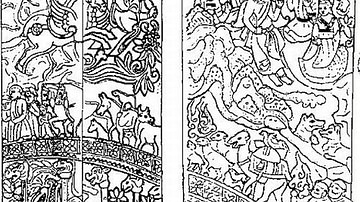
Definition
Chinvat Bridge
The Chinvat Bridge is the span between the world of the living and the afterlife in the ancient Persian religion of Zoroastrianism. It is also known as Cinvat Bridge, Cinvad Bridge, and Chinvato Peretav. Every soul, after death, was thought...

Article
Egyptian Afterlife - The Field of Reeds
The ancient Egyptians believed that life on earth was only one part of an eternal journey which ended, not in death, but in everlasting joy. When one's body failed, the soul did not die with it but continued on toward an afterlife where one...

Article
Death in Ancient Egypt
To the ancient Egyptians, death was not the end of life but only the beginning of the next phase in an individual's eternal journey. There was no word in ancient Egyptian which corresponds to the concept of "death" as usually defined, as...

Definition
The Negative Confession
The Negative Confession (also known as The Declaration of Innocence) is a list of 42 sins which the soul of the deceased can honestly say it has never committed when it stands in judgment in the afterlife. The soul would recite these in the...
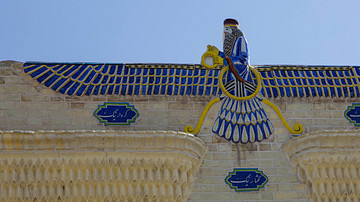
Definition
Zarathustra
Zarathustra (also given as Zoroaster, Zartosht, Zarathustra Spitama, l. c. 1500-1000 BCE) was the Persian priest-turned-prophet who founded the religion of Zoroastrianism (also given as Mazdayasna “devotion to Mazda”), the first monotheistic...
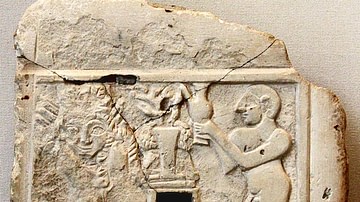
Definition
Ninhursag
Ninhursag (also Ninhursaga) is the Sumerian Mother Goddess and one of the oldest and most important in the Mesopotamian Pantheon. She is known as the Mother of the Gods and Mother of Men for her part in creating both divine and mortal entities...
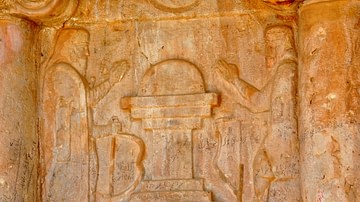
Article
Ancient Persian Gods, Heroes, and Creatures - The Complete List
The term 'mythology' comes from the Greek mythos (story-of-the-people) and logos (word or speech), meaning the spoken story of a people. Every civilization of the ancient world developed a belief system, which is characterized as 'mythology'...

Article
The Mayan Pantheon: The Many Gods of the Maya
The pantheon of the Maya is a vast collection of deities worshipped throughout the regions of Yucatan, Quintana Roo, Campeche, Tabasco, and Chiapas in Mexico and southward through Guatemala, Belize, El Salvador and Honduras. These gods informed...
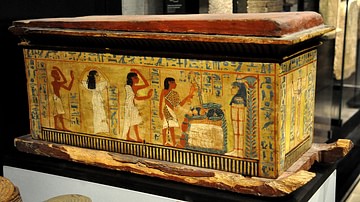
Article
The Egyptian Afterlife & The Feather of Truth
Is it possible to have a heart that is lighter than a feather? To the ancient Egyptians it was not only possible but highly desirable. The after-life of the ancient Egyptians was known as the Field of Reeds, a land just like what one knew...